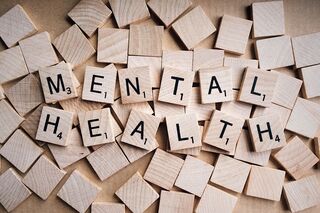Health
Combating Mental Health Stigma in the Armed Forces
Research shows continued stigma of mental health issues in the military.
Posted June 13, 2020 Reviewed by Lybi Ma

Over the last decade, the U.S. Department of Defense and its international alliances have increased efforts to improve mental health services for military members. Through establishing international campaigns, training, and educational awareness, the governments have updated guidelines to not only enhance the quality of life for military members but ensure effective mission readiness.
However, stigma is still embedded through a tough and resilient culture where personnel are reluctant to ask for help. Though innovative policies and interactive training have welcomed more to report mental health issues, the fear of being negatively labeled and job security remains the top reasons personnel will not self-report.
A 2015 study determined that approximately 60 percent of American active-duty members who suffered from mental health issues did not report symptoms due to stigma. Personnel felt their leadership would perceive them “differently” or see them as “weak.” In 2018, a Canadian study concluded a disproportionate risk of mental health stigmatized perceptions compared to those who suffered physical health issues while on active duty. Research found stigma was not a primary factor within the Canadian military and that physical health concerns were more of an issue, as medical conditions immediately impacted mission readiness. However, the British military had perceptions of stigmatization such as “weakness” and “difficulty in appointments,” resulting in a hesitancy to seek help for mental health challenges.
The Military’s Perspective on Mental Health Stigma
The ideation of stigma is predicated on interpersonal, professional, and social influences that alter the perception of circumstances within the military culture. Because stigma is correlated to negative connotations about mental health, it reduces military members’ willingness to seek help; therefore, stigma poses treatment as a weakness, constant worry over personal and professional embarrassment and perceptions, and fear of reduced job security.
For hundreds of years, military principles have focused on strong, resilient standards for service members based on a cultural ethos that can provoke denial about the need for assistance. More than any other service, U.S. Army soldiers have identified significant hurdles for treatment and emphasized such difficulties are not conducive due to their structured environment. Perceived need, structural and attitudinal reasons, among many, have stopped Army soldiers from initiating and continuing mental health treatment.
U.S. Air Force personnel feared potential barriers to career advancement as a result of mental health treatment while some were reluctant due to the judgment of abilities to perform duties. The U.S. Navy noted there are barriers due to ship duties, long voyages, and other limiting factors because of naval assignments that hinder adequate and consistent care. All service departments reported that due to the inflexibility of schedules there were barriers to attend appointments.
Ending the Stigma
Because of incessant stigmatization within the military, governments have requested more educational awareness and specialized training to identify mental health issues and promote healthy living. There have been challenges on how to increase participation in seeking treatment while reducing the stigma. Finding effective programs to fill this gap is critical to reducing the significant number of untreated cases within the military.
The National Council for Behavioral Health (NCBH) and the Missouri Department of Mental Health established Mental Health First Aid (MHFA), a course that teaches individuals how to understand and respond to mental illness and substance abuse. This course has been an integral component to identifying the signs, symptoms, and risk factors in mental illness, alcohol, and substance addictions. The program is derived from empirical-based research and focuses on training and certification that increases awareness on mental health issues while decreasing stigma to receive help for military members and veterans.
In 2019, CNN attended an MFHA workshop in Defiance, Ohio, a region that has high addiction and suicide rates. Reporters interviewed Tina Bost, an HR manager who realized through MHFA training that an employee was suffering from bipolar and psychosis. Bost developed fundamental principles that increased her understanding of the signs of potential mental health issues in the workplace. A week after training, she had an opportunity to save the life of a coworker by asking questions that revealed they were experiencing depressive symptoms and suicidal ideations. That coworker entered counseling and is on medical treatment. Bost stated, “before [MFHA course] I never went that far (with questioning). I’m glad I asked.”
MHFA courses within the Army National Guard units and community first responders have shown a willingness to accept intervention and treatment for mental health and substance abuse matters. Establishing the courses within all branches of service could be a promising feat to increasing participation while reducing negative perceptions. The NCBH reports instructors have distinctive training in which evidence-based research has proven mitigation in stigma about mental illness.
The U.S. Armed Forces work closely with its international counterparts to ensure the stability of global peace and missions. Mental health is a significant factor in effectively completing these missions abroad. Working with NCBH to create standardized programs with coalition forces can exponentially raise awareness on an international level, recognizing the importance of ending the stigma without averseness and retaliation.
References
Chillag, A. (2019). Why you should learn Mental Health First Aid. CNN News. https://www.cnn.com/2019/06/20/health/iyw-mental-health-first-aid-class…
Frank, C., Zamorski, M. A., & Colman, I. (2018). Stigma doesn’t discriminate: Physical and Mental health and stigma in Canadian military and Canadian civilians. BMC Psychology, 6, 61. https://doi.org/10.1186/s40359-018-0273-9
Hernandez, S. H., Bedrick, E. J., Parshall, M. B. (2014). Stigma and barriers to accessing mental health services perceived by Air Force nursing personnel. Military Medicine, 179(11), 1354-1360. https://doi.org/10.7205/MILMED-D-14-00114.
Mental Health First Aid. (2020). Research & evidence base. https://www.mentalhealthfirstaid.org/about/research/
Sharp, M-L., Fear, N. T., Rona, R. J., Wessely, S., Greenberg, N., Jones, N., Jones, N., & Goodwin, L. (2015). Stigma as a barrier to seeking health care among military personnel with mental health problems. Epidemiologic Reviews, 37(1), 144-162. https://doi.org/10.1093/epirev/mxu012
Williamson, V., Greenberg, N., & Stevelink, S. A. M. (2019). Perceived stigma and barriers to care in UK armed forces personnel and veterans with and without probable mental disorders. BMC Psychology, 7, 75. https://doi.org/10.1186/s40359-019-0351-7




